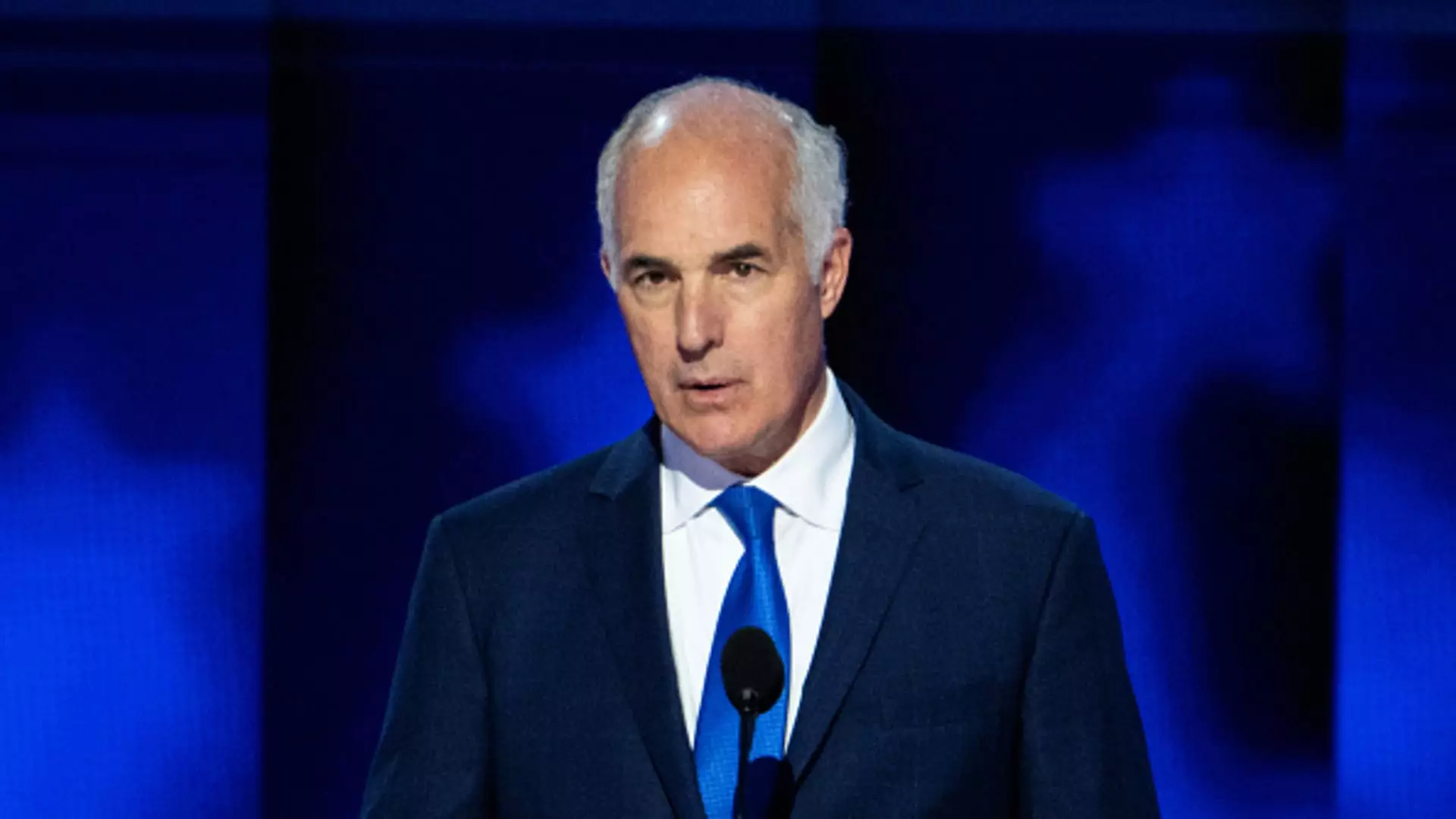In a significant turn of events in Pennsylvania’s political scene, Senator Bob Casey conceded defeat in the closely contested Senate race against Republican challenger Dave McCormick. The concession followed a meticulous counting process that underscored the razor-thin margin between the candidates, which was set to trigger an automatic recount. McCormick’s victory symbolizes not only his personal political triumph but also reflects broader shifts in voter sentiment within the state.
In a heartfelt video shared on social media, Casey acknowledged McCormick’s win, emphasizing the importance of every vote cast during the election and the need for citizens to unite and move forward. The commencement of what would be Pennsylvania’s new political chapter was marked by Casey’s graciousness in defeat, stating, “Pennsylvanians can move forward with the knowledge that their voices were heard.” It was a moment designed to reassure his supporters that their democratic rights were honored despite the outcome.
With nearly all ballots accounted for, McCormick secured around 48.8% of the vote compared to Casey’s 48.6%, with a mere 16,000 votes separating them. Such a narrow margin reveals the intense political divide and passionate engagement of the state’s electorate. This election not only highlighted individual candidates but also showcased the shifting demographics of Pennsylvania, an essential battleground for both parties in recent elections. The implications of this result extend beyond the immediate election cycle; they signal a potential reconfiguration of voter loyalty and party alignment in the state.
McCormick’s win is poised to strengthen the Republican majority in the Senate, bringing their total to 53 seats. This expanded majority could streamline the process for President-elect Donald Trump’s Cabinet confirmations and legislative agenda, enabling the GOP to push through critical initiatives more efficiently. The implications of this shift are staggering; a unified majority can drastically change the Senate’s approach to key matters ranging from economic policies to healthcare reforms.
The political landscape is evolving, and with Pennsylvania being a historical bellwether, McCormick’s victory may signal a broader trend that could influence future elections across the nation. As he stepped in to represent the state, McCormick emphasized his commitment to fight for every citizen, reinforcing the notion that the Senate’s role is inherently tied to the populace’s concerns.
Both Casey’s concession and McCormick’s ascent into the Senate open pathways for dialogue regarding the future of governance in Pennsylvania. The outcome serves as a reminder not just of the challenges of the electoral process but also of the enduring vitality of democracy. As political strategists and analysts delve into the implications of this election, one truth becomes clear: the voices of Pennsylvanians have echoed once again in Washington, and their influence will be felt for years to come. As the state embarks on this new chapter, it will be essential to observe how the dynamics within the Senate evolve and how they resonate back home.

Leave a Reply